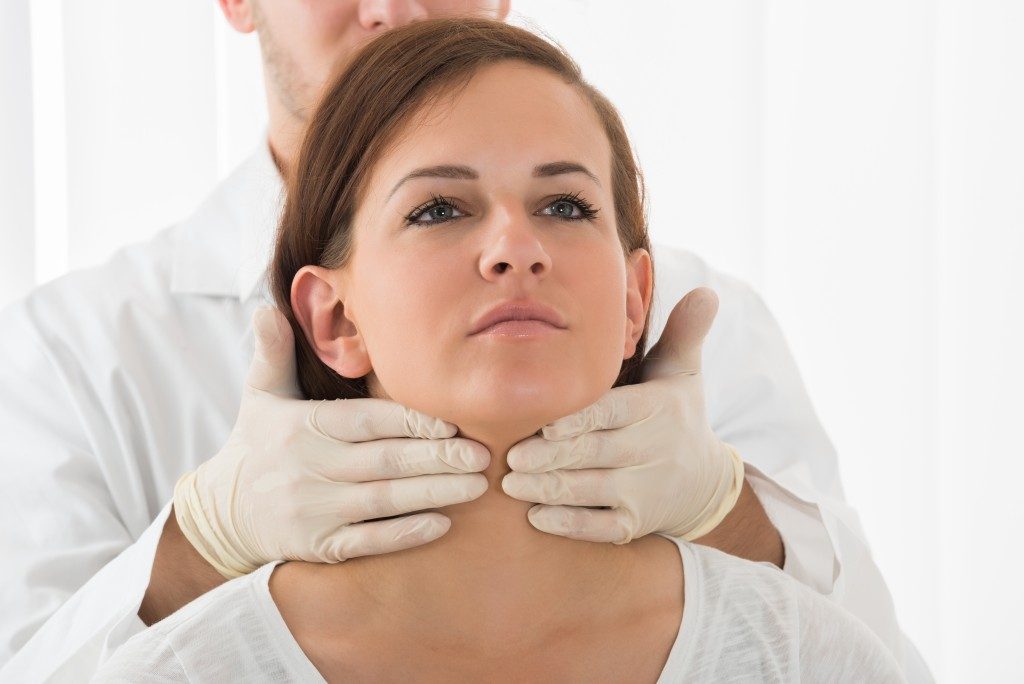Your jaw plays a pivotal role in everyday activities like talking and eating. But when something goes wrong with the temporomandibular joint (TMJ)–the hinge that connects your jaw to your skull–it can cause a lot of pain and discomfort.
TMJ disorders are relatively common, affecting an estimated 10 million Americans. And while the symptoms can be mild for some people, others may experience debilitating pain that interferes with their ability to perform everyday tasks.
If you think you may be suffering from a TMJ disorder, it’s essential to understand what it is and what treatment options are available. Here are four things you need to know about TMJ disorders:
What are TMJ Disorders?
TMJ disorders are a type of musculoskeletal disorder that affects the temporomandibular joint. This joint connects your lower jaw (the mandible) to your skull.
Several things can go wrong with the TMJ, resulting in many symptoms. These symptoms include:
- pain in the jaw joint
- clicking or popping sound when you move your jaw
- pain in the muscles around your face
- headaches
- neck pain
- tinnitus (ringing in the ears)
Some symptoms are unique to certain types of TMJ disorders. For example, people with internal derangement may experience:
- locking of the jaw
- pain when opening or closing the mouth
- change in the way the teeth fit together
General symptoms will always lead to inconveniences among people who have the disease. However, severe symptoms can lead to disability and excruciating pain.
What Causes TMJ Disorders?
Many things can cause TMJ disorders. Bruxism is one of them.
Bruxism
Teeth grinding is a common issue among Americans. It’s estimated that 8% of adults suffer from this condition. And while it may not seem like a big deal, teeth grinding can lead to severe problems like TMJ disorders.
People who grind their teeth put a lot of unnecessary stress on TMJ. It can lead to pain and inflammation in the joint. It can also damage the cartilage that cushions the joint, resulting in further pain and discomfort.
Arthritis
Arthritis is another common cause of TMJ disorders. Two main types of arthritis can affect the TMJ:
- Osteoarthritis: This is the most common type of arthritis. It’s caused by the deterioration of the cartilage in the joint.
- Rheumatoid arthritis: This is an autoimmune disorder that causes inflammation in the joint.
Since arthritis is a musculoskeletal disorder, it affects the jaw, which is primarily muscle. It can lead to pain, stiffness, and clicking or popping sounds when you move your jaw.
Dislocation
Dislocation of the TMJ is another common cause of TMJ disorders. It occurs when the lower jaw becomes misaligned with the upper jaw. This can happen for many reasons, including:
- trauma to the face
- dental surgery
- whiplash
Dislocation of the TMJ can be very painful. It can also lead to other symptoms like muscle spasms, headaches, and neck pain.
Tooth Loss
Pockets in your teeth can lead to a lack of stimulation in your jaw. This can eventually lead to the deterioration of the joint. It can also lead to pain, clicking, and popping when you move your jaw.
How are TMJ Disorders Diagnosed?
Your doctor will ask about your symptoms and medical history. They will also physically examine your head, neck, and jaw. This may include a feeling of any tenderness or clicking in the joint.
You may also need imaging tests like x-rays, MRI, or CT scans. These tests can help your doctor see any damage to the joint or muscles.
What are the Treatment Options for TMJ Disorders?
There is a variety of treatment options available for TMJ disorders. The best option for you will depend on the severity of your symptoms and the underlying cause of your disorder. One of the most common treatments is the oral surgery.

Oral Surgery
Sometimes TMJ disorder is related to your oral health. As stated earlier, tooth loss is one of the leading causes of TMJ disorder. An affordable tooth implant can help alleviate the disorder’s symptoms. It can stimulate the jaw more and reduce stress on the muscle itself. Full mouth reconstruction might be better if you have multiple missing teeth.
Physical Therapy
Physical therapy may be a good option if your TMJ disorder is caused by muscle spasms or inflammation. Physical therapy can help stretch and strengthen the muscles around the joint. This can help reduce pain and improve the range of motion.
Medication
Different types of medication can be used to treat TMJ disorders. These include:
- Pain relievers: over-the-counter drugs like ibuprofen (Advil) and acetaminophen (Tylenol) can help reduce pain and inflammation.
- Muscle relaxants: these drugs can help reduce muscle spasms around the joint.
- Antidepressants: these drugs can help relieve pain by affecting how your brain perceives it.
- Anticonvulsants: these drugs can help reduce muscle spasms and pain.
TMJ disorders are problematic for many people. Thankfully, it is highly treatable. By choosing the right treatment option for you, you can get your life back to normal.



